In a world where leadership is becoming increasingly critical to the delivery of impactful and equitable healthcare, few professionals exemplify the synergy between academic excellence and real-world application like Dr. Olamide Folorunsho. A proud alumnus of Nigeria’s prestigious University of Ibadan, he has steadily climbed the ladder of global public health practice—garnering rich experiences and shaping health outcomes across borders.
Dr. Folorunso’s most recent academic feat—graduating with an Executive Master’s (MSc) in Global Healthcare Leadership from the University of Oxford—adds another sterling feather to a cap already adorned with an MSc in Global Health and Development from University College London, and an MBA from Warwick Business School. This unique blend of medical, public health, and business education positions him as one of the few African professionals effectively bridging the gap between policy, practice, and leadership in the healthcare space.
In this compelling interview Akintunde Yusuf of Daily News NG, we explore the contours of his academic and professional journey—from Ibadan to Oxford—and delve into how his leadership training is being deployed to drive healthcare transformation globally and within local communities, particularly in Nigeria. From navigating the intricacies of public health strategy across fragile health systems, to reflecting on the political nuances of health leadership at the grassroots, Dr. Olamide Folorunso offers rare insights that are as enlightening as they are inspiring.
As we unpack his vision for a healthier Nigeria, his reflections on global best practices, and how he plans to turn knowledge into action—starting with the underserved and often overlooked rural communities of his own constituency, Akinyele/Lagelu in Oyo State.
Congratulations on your recent graduation from Oxford University with an Executive Master’s (MSc) in Global Healthcare Leadership. With your wide exposure, how would you describe your medical academic journey from the University of Ibadan to Oxford University? How has this new academic achievement shaped your understanding of leadership, particularly in healthcare systems?
It’s been interesting and continually fulfilling. The University of Ibadan provided me with a solid academic basis. In addition to my studies, I had the opportunity of participating in a few student leadership responsibilities. After rounding up my medical studies, my specialization preferences were Public Health, Surgery, or Psychiatry in that order- quite a range (laughs). Psychiatry fizzled and Surgery also became a distant second option after my national service year, during which I worked for a few months in an orthopedics surgical department. I would go on to work in and enjoy Pediatrics, but Public Health remained my choice career path. I got my first public health job with Solina Group based out of Abuja and I have not looked back. To improve my public health education and skills, I proceeded to University College London (UCL) where I studied for an MSc in Global Health and Development and got a job with Gavi, the Vaccine Alliance, based out of Geneva and subsequently UNICEF Supply Headquarters in Denmark and later with UNICEF Headquarters based out of Geneva.
As I progressed in my career, I thought it was increasingly important to hone my understanding of strategy, business, management and organizational behavior and I was opportune to secure a scholarship to study at Warwick Business School, University of Warwick, UK, for a Master’s in Business Administration (MBA).


The recent University of Oxford experience was interesting because when COVID-19 struck, combined to the emerging trends I observed in the global health space, I could project that a new set of leadership skills and expertise would be required to navigate the period of uncertainty we were about to face- which incidentally is now fully here with us with recent happenings, post-US elections.

…
The programme was transformative to say the least and since it was a melting pot for about 35 senior healthcare leaders from around the world, the learning was 360 degrees- from the distinguished faculty but also from experienced classmates.
…
Dr. Olamide Folorunso
Healthcare systems rise and fall with leadership and in periods such as we are globally, with shrinking fiscal space, multiple competing priorities, rise in nationalism and protectionism, dwindling aid, amidst perennial epidemics, reversal of gains made in previous decades (such as seen with rise in measles infections), inter-playing with drought, climate change effects, increasing non-communicable diseases cases, transformative leadership is required for any health system to deliver in a timely way to its beneficiaries.
You’ve emphasized that Global Healthcare Leadership is a unique field. With the new skills and knowledge you’ve acquired, how do you plan to apply the core principles of this program to strengthen healthcare delivery globally and in local communities in Nigeria?
I have learnt that competitive resources, uncertainties, and complexities (which can describe our current global health space) must not necessarily translate to failure and lack of health access to citizens but that for this not to be the case, astute leaders that are able to handle multiple paradoxes, lead with empathy but demand results and who can creatively design and deliver multi-sectoral initiatives will succeed. I am immediately applying the learnings to the work I do in support of national health programmes in countries with huge populations such as Nigeria, Pakistan, Bangladesh, Ethiopia and Democratic Republic of Congo but also Uganda, Malawi, Sierra Leone, Gambia and Cabo Verde, to mention a few.
Central pieces of healthcare leadership, at a global/national scale or for a particular community include use of diverse leadership styles depending on the occasion, premised on a transparent diagnostics of the healthcare leader’s leadership strengths, weaknesses and preferences, and ability to draw linkages and frames between multiple seemingly different perspectives to advance healthcare in a holistic way. Also, a leader must clearly define what success is for them, especially when there are multiple interests and needs. For example, is it acceptable to them to provide healthcare only to recipients in urban and peri-urban areas or would their performance indicators include how many rural or vulnerable or underserved populations and communities are served?
Additionally, healthcare practitioners and leaders cannot be successful if they take an isolationist approach. While most healthcare problems present as health issues, they have underpinning social, economic, well-being, infrastructure, lifestyle factors, and as such, for longer lasting solutions, leaders must collaborate across sectors, including with the community and beneficiaries as critical actors and partners.

As a politically conscious Nigerian, what parallels do you see between global healthcare systems and the realities of grassroots practice in Nigeria?
Well, Nigeria is a subset of global healthcare system and even taking a Nigeria- there are multiple healthcare systems realities that exist within the nation. Nigeria as a developing country with high fertility rate and correspondingly high population, limited health infrastructure, poor sustainable healthcare financing, and relatively sub-optimal health seeking habits, presents with high healthcare delivery needs. These result in high morbidities and mortalities due to preventable diseases, lack of adequate and limited motivation for available health and para-health workers, rising number of non-communicable diseases including young people.
While several interventions are being carried out, the major pain point is still that a lot of innovation, public-private partnerships are catalyzing world class healthcare delivery in the major cities in Nigeria while there’s limited commensurate investment in an extensive and optimal network of well-equipped primary, secondary, or tertiary healthcare provision centers, country-wide, including in underserved communities. It must start from appropriate allocation but also budget execution, disbursement, and use for health, for example, the African Union had the Abuja declaration where member states committed to allocating at least 15% of national budget to the health sector). Leaders must also prioritize health for all through incentivizing others to invest in primary and secondary healthcare in non-major cities and collaborating with domestic and international donors on critical public health priorities.
Do you believe leadership in the health sector often intersects with politics, especially at the local level? How prepared do you feel to navigate the political aspects of the health sector, drawing from your professional experience, if an opportunity arises for you to head a government health institution?
The case of health and politics or governance is a clear one. While health leaders oversee direct implementation of health interventions, the ability to elevate the prioritization of healthcare and ensure it’s on the agenda of governments and partners, to demonstrate the benefits of investing in healthcare- often in direct competition with other investment needs- and the process of unlocking resources to implement the interventions all depends on governance and political power. It’s important to leverage data, be clear on both baselines and targets, cultivate and deploy partnerships and collaborations with other institutions, partners, or sectors demonstrating efficiencies and increasing the number of champions. It’s always critical to have an experienced team that can support different interventions, to effectively communicate successes and address bottlenecks, and most importantly to engage the beneficiaries or citizens in a proactive rather than reactive way.
Tribute to Mrs. Nancy Bassey Olayinka Muraina By Asimiyu Muhideen Abiodun
Your constituency, Lagelu/Akinyele Federal Constituency, is mostly rural. Do you think these areas are underserved within the Nigerian healthcare system? What do you think is the solution if they are indeed underserved?
As I have mentioned before, generally, in Nigeria, there’s a chronic and widening urban-rural development (including for health) gap. So, this is not peculiar to but inclusive of Akinyele/Lagelu constituency. In reality, healthcare delivery requires significant investments in diverse preventative and curative health needs, and those investments must come from somewhere. Inherently, there’s no ‘free healthcare’ as this only means what recipients get for free have been paid for by the government, domestic, or foreign partners; either through government resources, taxes, grants or technical assistance etc.
As mentioned around the Abuja declaration on health financing, government must directly invest in health, at par or beyond that commitment, but also encourage creative healthcare financing by well-earning individuals whilst ensuring that collection loopholes are blocked. There’s no reason why premiums remain not deducted from citizens who have committed to pay or the lack of pull incentives to make more organizations enroll their staff in health insurance mechanisms. Government must make policies that prioritize rural communities for health investments, especially as most quality private health investments have biases for urban areas with better infrastructure, higher paying customers, and higher potential to recoup profit. In addition to addressing the infrastructure and economic deficit in rural communities; government must envision rural communities’ healthcare initiatives and incentivize willing investors to prioritize these communities.
How do you see public or humanitarian services? And how has it shaped your personality and worldview? In what capacity and what has been your contribution to the development of your people?
My worldview is that the greatest contribution you can make is in service to others. I have been lucky to have that as a watchword from a young age- so service comes naturally. From primary and secondary schools at Mayflower School Ikenne, Dr. Tai Solarin built in us a foundation of integrity, empathy, quest for social justice, and selflessness. Luckily, my public health career lives this out as what I do on a daily basis contribute directly to delivering healthcare, preventing disease, and assuaging suffering.
On a personal front, I have also contributed and continue to contribute directly to making life better for my immediate community. Of course, the greatest effort is still in the future, and I look forward to partnering with people of like minds to ensure that meaningful developments are continually prioritized for the people. Of course, I know what you may be referring to but as our current representative in Abuja said recently at a visit to Akinyele local government party meeting ‘e duro de signal, ma be, signal ma wa’ (laughs), let’s wait for the ‘signal’ and we’ll be guided aright.
Thank you for your time this expository interview in knowing the reality of our health sector.
My pleasure to meet with you and having this session for the sake of national development.



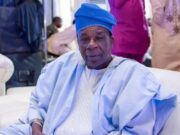













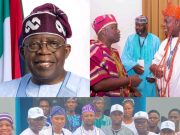
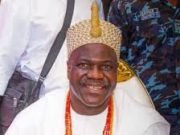


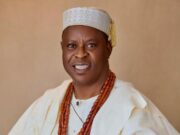
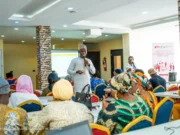
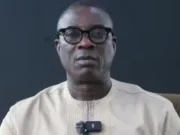





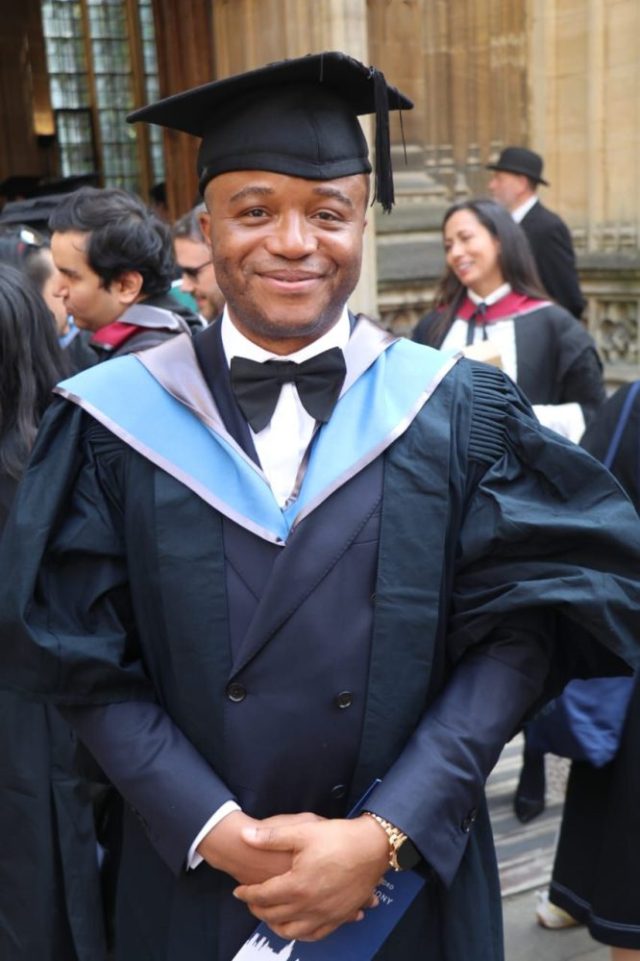
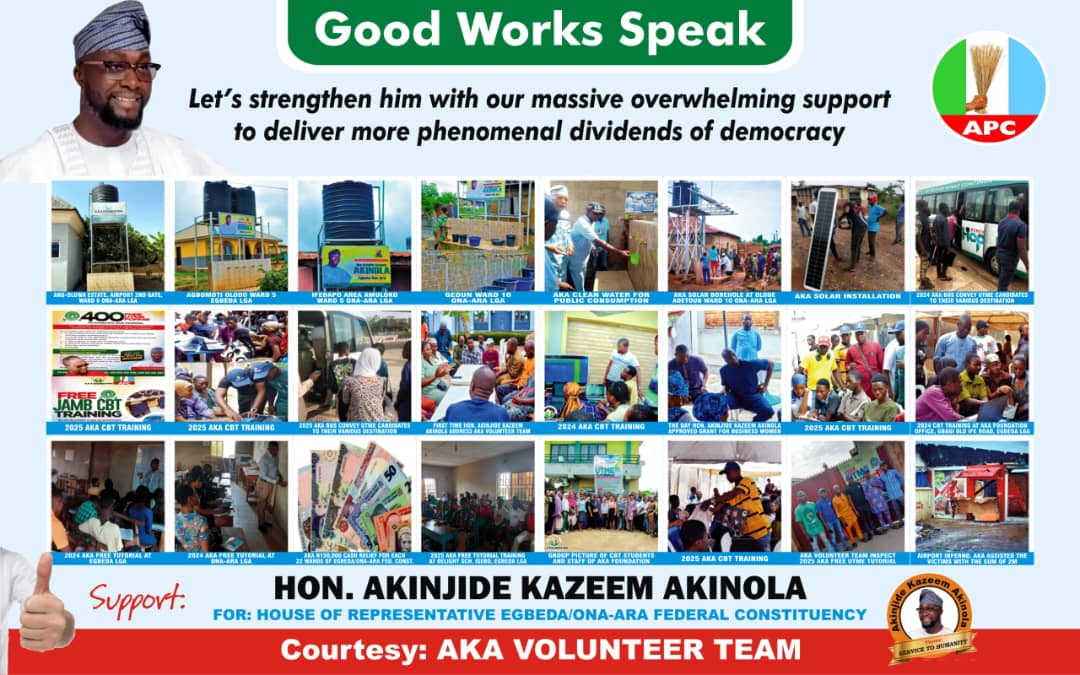

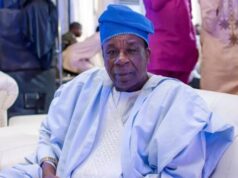




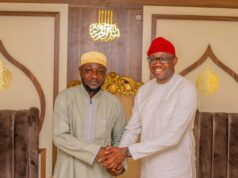



[…] […]
[…] […]